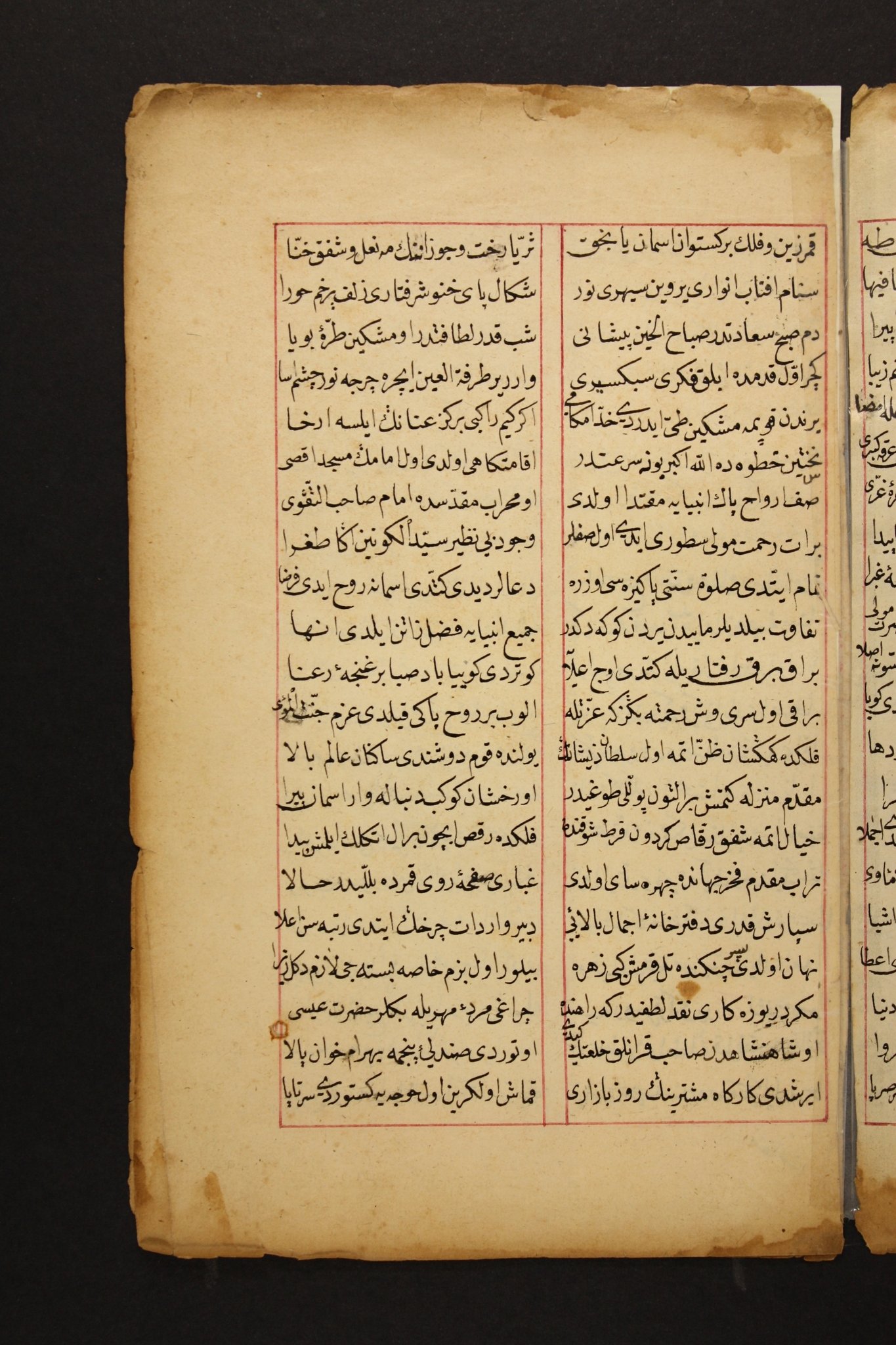
ALAUDIN SABIT UŽIČANIN
Author: Shaykh Assist. prof. Edin Urjan Kukavica, PhD, Faculty of Education of University of Sarajevo, shaykh of Naqshbandi and Rifa'i tariqas
• Illustration: Manuscript no. 665 – Alaudin Sabit, Mi'rağğiyah (Miradžija)

Sabit Užičanin (Užice, 1650 – Istanbul, 1712) was certainly one of the most significant, if not the most significant, of all our Diwan poets, though he is also important as a tasawwuf poet since his poetic expression differs greatly in terms of spirit. What gives a distinctive feature to Sabit's works is the original style and language, unburdened with the multitude of symbols – which are the basic characteristics of tasawwuf poetry. He managed to build his own style, expand strict frameworks of diwan poetry and express his thought in a language which is alive, which includes elements of Sabit's mother tongue and features of Turkish spoken language. Due to such a revolutionary approach many contested him even after his death. However, many authorities managed to grasp Sabit's true value. Whatever the case, Alaudin Sabit Užičanin remained recorded in the history of literature of Ottoman Sultanate as one of the most impressive, most original and greatest poetic figures, which is proven by the fact that Sabit is the only poet of the vast sultanate who twice recited his verses by Bejtullah.
Sabit was first educated in his home town, which then belonged to Bosnian Eyalet, and then in Istanbul, where he later worked at various jobs. His job brought him to Sarajevo, where a cultural and intellectual circle began to gather and form around him. With his work and figure, he affected many contemporaries, particularly Mehmed Rešid.
Sabit wrote Diwan with over six hundred poems, Zafernama (Book about victory), an epic poem of 426 verses, an unfinished love poem about Edhem and Huma, and Miradžija. Sabit's life path, where he often had to struggle with life, is reflected in his poetry, where he often writes about social circumstances and reality of life. His originality and powerful poetic expression were also a model for many poets of later period. All historians of literature in Turkish position him very high and, according to many, his Zafernama is the most significant work of the whole epoch.
Kad ajete...
Kad ajete iz Kur'ana o boju razjasni ondare
će vojnicima ovaj govor krasni:
“Vitezovi, počujte me, da vam kažem jasno –
Na crnu ste zemlju došli, da pomrete časno.
Nit' je ovaj svijet vječan ni naklonost neba,
Il' gazija ili šehit svakom biti treba.
Kad ćemo još dočekati 'vaki Bajram jedan?
Ko pogine, bit će šehit, ko ostane sretan.
Čujte, braćo, znamenit' je dan današnji za nas,
Junački je ovo Bajram, slavni pir je danas.
Gazije će časno ime u narodu steći,
A šehiti u rajske će đulistane preći.ˮ
Kad u vojsci vriska nasta, trese se od zora
Na površju zemaljskome devet slavnih gora.
Ta krvava suza kamen u rubin pretvara.
I crvene sekajike po poljima stvara.
(When ayats...
When ayats from the Qur'an about the battle are clarified,
Soldiers will hear this beautiful speech:
“Listen to me, knights, let me be clear–
You came to the dark land, to die honorably.
Neither is this world eternal, nor affinity of heavens,
One can be either a hero or a martyr.
When will we see another Id?
Who gets killed will be a martyr, who remains will be happy.
Listen, brothers, today is a famous day for us,
This is a heroic Id, today is a famous feast.
Heroes will be honored by people,
While martyrs will move to heavenly rose gardens”
When army begin to scream, the dawn shakes
Nine glorious mountains on the Earth surface.
The bloody tear turns stone into a ruby.
And creates red flowers in the fields.)
Illustration:
Manuscript no. 665 – Alaudin Sabit, Mi'rağğiyah (Miradžija)
On the list of manuscripts important for Bosniak literary heritage, a special position is granted to the manuscript Mi'rağğiyah (Miradžija, a poem about Miraj, Muhammed's, a.s. ascension to the heaven) by Alaudin Sabit Užičanin (died in 1712), certainly the most significant poet of Bosniak in the Ottoman period, while Miradžija in particular is considered his masterpiece. It is most often found as part of Sabit's Diwan, and, interestingly, in the manuscript owned by Bosniak Institute it has been transcribed independently.
This Miradžija was transcribed by Muhamed Muteveli Sulejman-aga-zade in 1154 Hijri year/1741-2 A.D. The transcription is beautiful, written in Nash style, the poem was written in two columns and the text is framed with red color.


